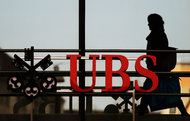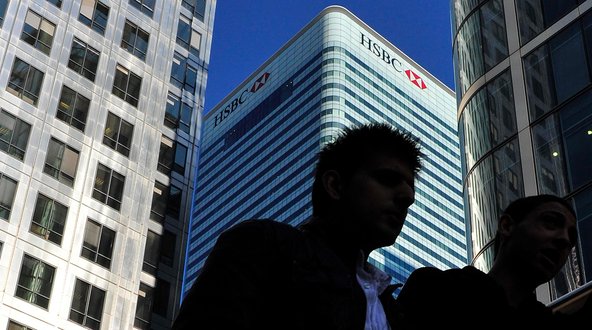“I am weak and alone,” Mr. Falciani said, as three round-the-clock bodyguards provided by the French government looked on with hard stares. The protection was needed, he insisted, because he faces constant risk as the sole key to decipher the encrypted data — five CD-ROMs containing a list of nearly 130,000 account holders that may be the biggest leak ever in the secretive world of Swiss banking.
But as he settled into a deserted bistro for a two-hour lunch, Mr. Falciani, a former computer technician who has been on the run since 2008, seemed oddly relaxed for a fugitive. And why not?
He is in high demand these days, having cast himself as a crusader against the murky world of Swiss banking and money laundering. Once dismissed by many European authorities, he and other whistle-blowers are now being courted as the region’s governments struggle to fill their coffers and to stem a populist uprising against tax evasion and corruption.
“It’s an economic war,” said Mr. Falciani, an angular man of 41 with a dark goatee who sometimes dons disguises, though on a muggy summer afternoon favored an innocuous beige tie and short-sleeved dress shirt. “In Switzerland, the banks are so organized that they are able to circumvent new rules and laws to continue to enable tax evasion.”
Critics, not least at his former employer HSBC, dismiss Mr. Falciani as a manipulator more dazzled by money than high ideals. The data he has leaked — some say sold — since 2008 has wreaked havoc within the banking world, as well as the moneyed and political classes of Europe.
Mr. Falciani’s information formed the basis for the now famous “Lagarde list” that has roiled Greek politics with its revelations of oligarchs and politicians who avoided taxes by stashing millions in Switzerland. His data is also credited with helping Spain collect 260 million euros ($345 million) in taxes and identify more than 650 tax evaders, including the president of Banco Santander.
In 2012, Mr. Falciani passed his information to American authorities. They, in turn, used the data to pursue an investigation into whether HSBC flouted controls on money laundering, eventually forcing a $1.92 billion settlement with the bank in December.
More than a few rich and powerful people await his next move. Mr. Falciani asserts that only a small portion of the data has been decrypted and used.
Since being released from jail this year after a Spanish judge denied a Swiss extradition request, Mr. Falciani, who is married and has a young daughter, has resurfaced in France. Authorities here have offered protection in exchange for Mr. Falciani giving testimony to local prosecutors who are investigating whether HSBC helped French clients dodge taxes.
“My main objective is to help authorities develop a defense,” Mr. Falciani said.
“We are under attack and losing a lot of tax money,” he said of the Swiss banking system. “If you have enemies who want to invade, laws are not enough and you need armies to build an economic defense.”
A native of Monaco who was educated in the south of France, Mr. Falciani once worked in obscurity at HSBC. In 2005, he was promoted and transferred to Geneva. The following year, he said he raised concerns to his bosses about security flaws in the Swiss computer system that could violate the privacy of depositors.
Ignored by his superiors, Mr. Falciani said he started collecting the information methodically, in an effort to prove the system was vulnerable. The bank denies that he ever alerted them and believes that he amassed the information over a two-year period.
Early on, Mr. Falciani said he got the brushoff from German bureaucrats who weren’t interested in his trove of data. His information was also shunned in France by the previous administration when “authorities tried to make evidence disappear and they didn’t want to know,” he said.
Then the European economy slumped and governments started to take notice.
In a report from the French National Assembly issued in July, the lawmaker Christian Eckert chided authorities for being slow to use Mr. Falciani’s list. According to Mr. Eckert, the information included 127,311 clients, including 6,313 from France who were suspected of tax evasion.

Article source: http://www.nytimes.com/2013/08/09/business/global/a-whistle-blower-who-can-name-names-of-swiss-bank-account-holders.html?partner=rss&emc=rss

